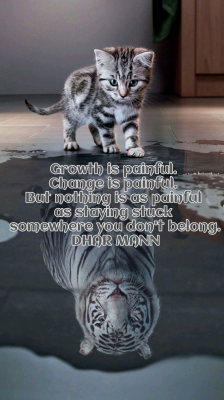Peaceful mind = Peaceful life
08.09.2021., srijeda
What happens to your brain if you whine every day?
|
Thought changes structure… I've seen people change their brains with thoughts, to heal a previously incurable obsession and trauma, says Norman Doidge, a psychiatrist and author of The Self-Changing Brain. The human brain is incredibly flexible. It can be shaped almost like plasticine, only with a little more time and effort. In the last 20 years, thanks to rapid developments in brain imaging and neuroscience, it can now be said with certainty that the brain is capable of reengineering - and that we are engineers ourselves. To a large extent, neuroplasticity - a general term that describes permanent changes in the brain during human life - is a great thing. Here are some reasons why: We can increase our intelligence. We can learn new skills that can change our lives. We can recover from certain types of brain damage. We can increase emotional intelligence. We can get rid of harmful behaviors, beliefs, and habits. On the other hand, we can redesign our brain upwards! Fortunately, thanks to our ability to let go of harmful behaviors, beliefs, and habits, we can always get back on track. Beliefs change the brain Donald Hebb, an early pioneer of neurolasticity and neuropsychology, said that neurons that function together are interconnected. Dr. Michael Merzenich, who is perhaps the world’s most famous neuroscientist today, upgraded Hebb’s work, proving the relationship between thought and structural changes in the brain. Our experiences, behavior, thinking, habits and the way you react are inseparable from how our brain is shaped. Negative habits change our brain upwards. Positive habits change our brain for the better. Moaning and changes in the brain How does negative behavior such as whining change the structure of the brain? We all know someone who is always negative. A person who seems never satisfied. Negative people almost always complain about something. Worse, people who are constantly whining are not content to keep their thoughts and feelings to themselves, but are looking for some reluctant listener. Undoubtedly, they irritate their friends and family, but they should not be blamed but understood. We all complain about something from time to time. In fact, researchers at Clemson University have empirically proven that we all grumble from time to time. Some just do it more often than others. Some people complain in order to attract attention in this way and always think about how it is harder for them than for others. Some are chronically dissatisfied. If they are not talking about their problem, then they are probably thinking about it. Psychologists call this compulsive behavior rumination, which is defined as repetitive thinking about a problem without end. Rumination is, unfortunately, directly related to the depressed and anxious brain. People who constantly complain have a lower emotional coefficient, which is necessary to understand emotions. They are not interested in your point of view, thoughts or feelings. They will use every opportunity to annoy you. Is the brain to blame? The answer is mostly - yes. Most negative people don’t want to feel this way. Who would want to? Harmful behavior such as whining, if we allow it to take place continuously in the brain, will inevitably alter thought processes. Altered thoughts lead to altered beliefs, which leads to changes in behavior. Our brain by nature tends to focus more on negative circumstances than on positive ones. Dr. Rick Hanson, a neuroscientist and author of Buddha’s Brain, explains it this way: Negative stimuli produce more neural activity than equally intense positive stimuli. They are also easier and faster to spot. Repetition is the mother of knowledge. When we repeat the focus on the negative, complaining constantly, we use the neurons responsible for the negative tendency. So we create negative behavior through repetition. It is not possible to be happy and positive all the time, nor should it be tried. However, we need to take concrete steps to combat negative thinking. Research shows that meditation is one way. |








































































